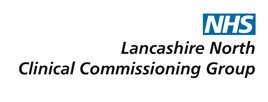Initially the project was devised as a pilot for a 12-week period but due to its success, it was extended.
Forty individuals were referred into the service in the first three months with 90% of them engaging with a recovery coach. A recovery coach is an expert in the field of recovery through personal experience and rigorous training.
Some of their aims are to:-
• Bridge the gap between addiction and recovery by supporting individuals as they identify a need to change their current lifestyle and behaviours
• Provide structured guidance through the many different approaches and strategies available to aid personal recovery for the clients
• Work with the client to create their own pathway to recovery, identifying personal strengths and areas for support, developing personal interests and opportunities for community involvement
• Provides strategies, resources and support to enable an individual to make the huge life changes needed to prime, initiate and sustain their recovery
The recovery coach cannot make recovery happen for another but can provide hope, share first-hand experience and introduce the individual to others who have already taken a similar journey. Marc Cottee, Red Rose Recovery Project Team Leader at Red Rose Recovery, said: “I have suffered several years in and out of hospital due to severe alcohol addiction and acute medical problems. The HALS team and medical staff saved my life. Even after all the advice and warnings, I still could not stop and I was representing into A & E. I had no hope and was destined for death" “After nine months in treatment, I was fortunate to be selected to train as a Red Rose Recovery coach to help people who are still suffering with addiction. After the training, I was given the opportunity to lead a project which involved going into hospitals and showing visible recovery to those still suffering due to alcoholism. It was my chance to give something back to all the medical staff who had saved my life and also show people who are still in the grips of addiction that there is a way out. “I am now a year free from addiction and have a purpose in my life to help those suffering and giving them hope and a belief they can recover.”
Over the period of the pilot 40 clients referred into the service, 4 of these were classed as a ‘frequent attender’ at University Hospitals of Morecambe Bay NHS Foundation Trust. Frequent attenders are estimated to account for 1-2% of all UK emergency department attendances.
Alcohol Liaison Nurse at Royal Lancaster Infirmary, Jan Fisher, commented: Since engaging with Red Rose Recovery, we have been able to offer a supportive network for patients attending emergency services in crisis due to alcohol. Red Rose Recovery contacts the individual within 24 hours of referral. Red Rose Recovery and Hospital Alcohol Liaison Service have developed strong care pathways from hospital to community. The relationship we have with Red Rose Recovery has enabled us to improve the outcomes for people with alcohol dependency. Due to the success of the pilot, the project has been continued and is considered to be a flagship enterprise.

